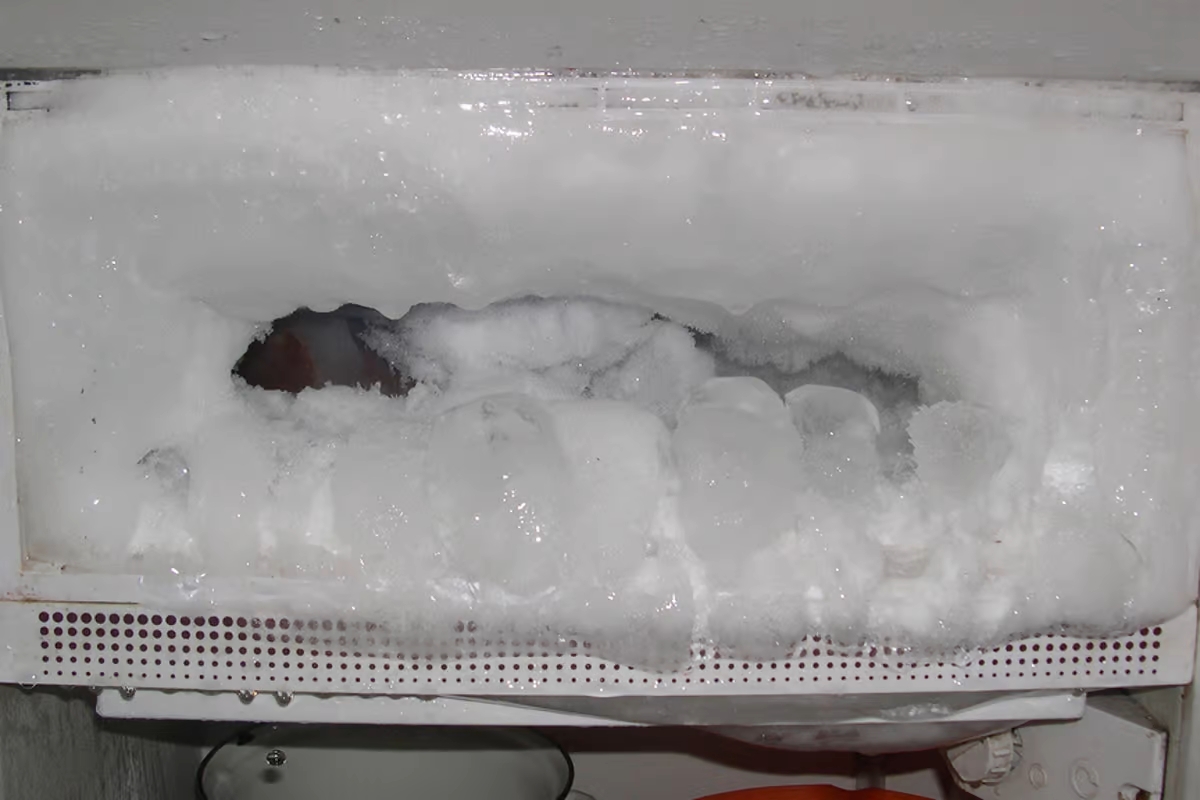
VIEW 4 IMAGES
This new approach to icephobic materials is a truly disruptive id
Although advances in refrigeration technology means we don’t need to defrost the freezer as often as we used to, many of us are still forced to carry out the task on a regular basis lest we find the frosty walls closing in to claim that tub of ice cream. Now a team from Harvard University has developed ultra smooth slippery surfaces that prevent ice sheets from developing by allowing even tiny drops of condensation or frost to simply slide off. As well as keeping freezers frost-free, the technology could be used to prevent ice build up on metal surfaces in wind turbines, marine vessels, and aircraft.
While we’ve seen the development of superhydrophobic coatings that mimic the surface of lotus leaves, the Harvard research team, led by Joanna Aizenberg, have developed a different technology called SLIPS (Slippery Liquid Porous Surfaces) While lotus leaf-inspired surfaces mimic the tiny irregular bumps spiked with tiny hairs that give the lotus leaf its water repelling capabilities, SLIPS are molecularly flat, defect-free, liquid-repellant surfaces that are almost friction-free, letting them repel a wide range of liquids of varying surface tensions, from hydrocarbons such as crude oil and ethanol, to viscous fluids such as blood.
And unlike lotus leaf-inspired techniques, which the Harvard team says can fail in conditions of high humidity as the surfaces become coated with condensation and frost, SLIPS technology is suited to conditions of both high humidity and extreme pressure. By wicking a chemically-inert, high-density liquid coating onto roughened surfaces, the coating can be applied over a large scale on arbitrarily shaped metal surfaces.
To demonstrate the technology, the researchers tested it on refrigerator cooling fins exposed to prolonged, deep freeze conditions. They claim the technology outperformed existing “frost-free” cooling systems by completely preventing frost for much longer and more efficiently.
“Unlike lotus leaf-inspired icephobic surfaces, which fail under high humidity conditions, SLIPS-based icephobic materials, as our results suggest, can completely prevent ice formation at temperatures slightly below 0°C (32°F) while dramatically reducing ice accumulation and adhesion under deep freezing, frost-forming conditions,” said Aizenberg.
via Gizmag – Darren Quick







